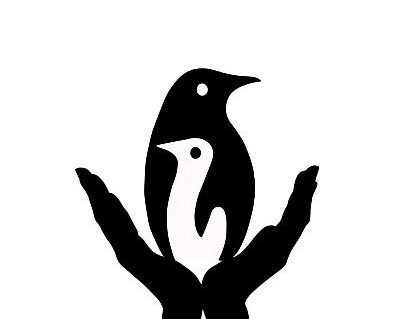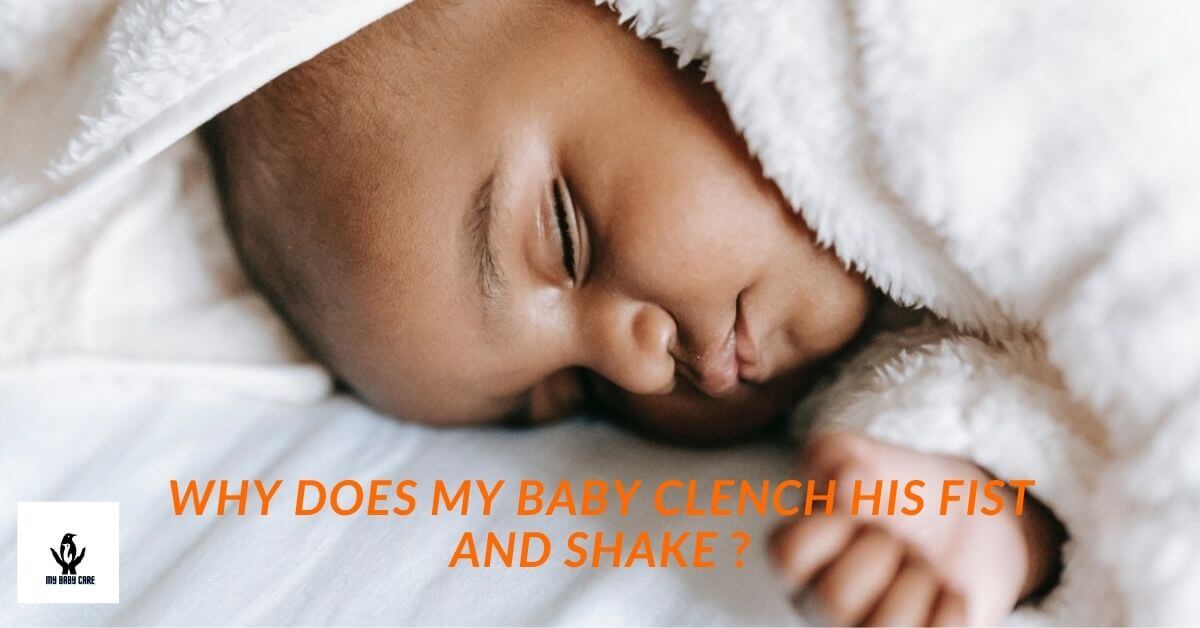Table of Contents
Commonly new parents bother, why does my baby clench his fist and shake all the time. The newborns present few primitive reflexes just after birth and even a few weeks later. Palmer grasp reflex is the most common reason for the clenching fists and that may disappear due to that grasp reflex doesn’t present in newborn babies. Sometimes clenching fists is a communication method of newborn babies.
When you see a newborn, you can see various body patterns within them. Sleeping patterns, feeding patterns, specific pooping body postures are among them. Also, the clenched fists are another important body pattern you can see among the new babies.
1. What reasons do babies clench their fists
Some researchers say the clenched fists are of a sign language of babies. Babies try to clench their fists to tell that they are hunger. With regard to a newborn, their fists are clenched and their arms and legs are bent within the first few weeks after birth. They always try to take all body parts into the midline of their body. This specific body posture is something very normal body pattern as most babies are used to maintain the same fetal posture which they were used just after birth.
But you need to observe the baby’s fist very closely. That fist is tightened with the over-clenched hand rather than the normal reflex, which may be a sign of another indication.
Few things to understand with newborns
Vestigial primitive reflex
a newborn baby has a lot of challenges after birth. They have new sights, sounds, smells, feelings, and other various external stimuli which they try to respond to very quickly and adjust to those responses. But their body is relaxing slowly. So you may have seen those clenched hands with fists same as the other limbs just after the birth.
Did you notice the grasp reflex?
As soon as you touch the palm of your baby they automatically make a tight fist and hold your finger. That is called the Palmer grasp reflex. There also you can see a clenched fist. These grasping reflexes are very strong. Babies prevent opening their palms by using these reflex activities. It may take few weeks to clench and clench their fists.
Cerebral palsy
This is a condition that happens due to a lack of oxygen supply to the baby’s brain during birth. The brain damage occurs here. So the normal tone of all body muscles is increased due to that damage. The baby clenches his/her fists all the time. Also, the whole body is stiff most of the time. So if you notice the strong clenched fists with the majority of body muscle tightness of the baby’s body, that type of clenched fists happen due to cerebral palsy which is a neurological condition DUE TO BRAIN DAMAGE
A clenched fist may be a clue of communication sign
Usually as newborn starts to open up their hands by 8 weeks. After that, it takes another 3-4 months to use that hand to reach to something and grab it. Because the hand function requires a more developed nervous system and comprising complex brain function.
So we can consider the clenched fist may be a sign of stress or even hunger. So I consider this as primarily a communication sign here. Again I say this is not something to worry about for the parents.
Look closely about the Moro reflex
This is something a reflex activity just as the grasp reflex we earlier mentioned. Here the infants throw their both arms and legs away from the body ( Away from the midline ) and then try to bring them back to the midline of the body with bend upper limbs and lower limbs with tightly clenched fists. You all can see clenched fists in these situations which are named Moro reflex explained clearly at the beginning of the article.
2. When do babies make a simple power grip – Clenching and unclenching of their fists to start using their hands
Newborn babies try to clench their fists within the initial few months after birth. It means the Palmer grasp reflex is present within these few months. Then the grasp reflex is going to disappear mostly after three months. They start clenching and unclenching their fists by the age of 3-4 months and try to grab something their own. The slow maturation of the nervous system is there with those babies.
They simply try to reach the toys and other objects and grab them tightly and take them into their place. Proper firm and solid grasping skills can be seen 6-7 months of age. The specialty here is, they can grasp and release the grasp when they want. All the babies develop these skills talking their own time to learn.
If your baby keeps their clenched fists for more than 6-7 months, It is your best time to call your pediatrician.

3. If your baby does not clench his/her fist?
The clenched fist of your baby is a modification for preventing the baby’s fingernails from harming the amniotic sac. Dear parents, I am talking here about your pregnancy period. If your baby doesn’t clench their fist inside the womb, It may harm the most fragile part of the womb ( A VERY THING AMNIOTIC SAC LAYER.) which surrounds the baby.
This amniotic sac is a nurturing membrane that contains various biochemicals. If any scratching happens, this flimsy sac releases hormones and other chemicals which may lead to premature labor. So to have a clenched fist is essential during the baby is in the womb. It is a way of preventing the harming of the amniotic sac.
Amniotic band syndrome – A condition where a baby can not form a proper grasp reflex.
4. Final toughts
For most new parents, clenching fists all the time is a very curious problem with their babies. This is very common most of the time and this happens due to the primitive reflexes of newborn children. So the Palmer reap reflex is the commonest reason for this newborn’s clenching fists.
In addition to that, some categories of babies used that as a communication sign and try to pass signals with regard to their basic needs in day-to-day life. Commonly this is an untold sign of the huger feeling of the baby. In this specific time period, the babies can’t demonstrate body language even. So these types of communication channels are very helpful for them.
Neurological conditions such as cerebral palsy, amniotic band syndrome are medical conditions that may connect to the clenching fists of newborn babies.
Finally, parents should consult their pediatrician if the clenching of fists is still presenting with their babies even passing the 6-7 months of age.

